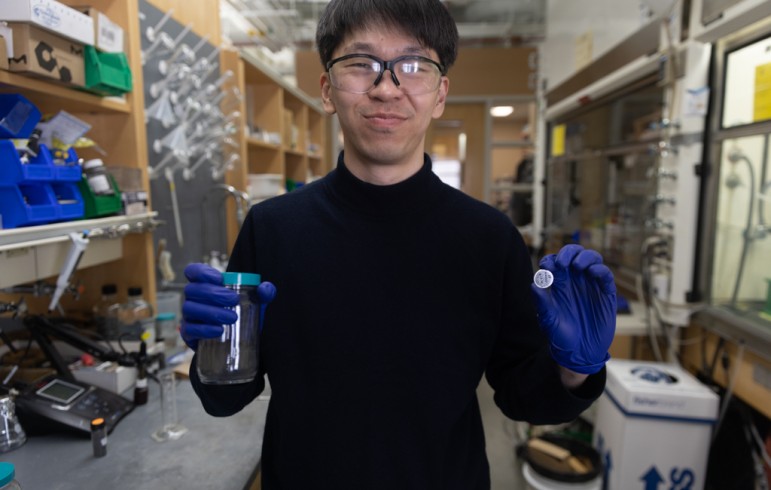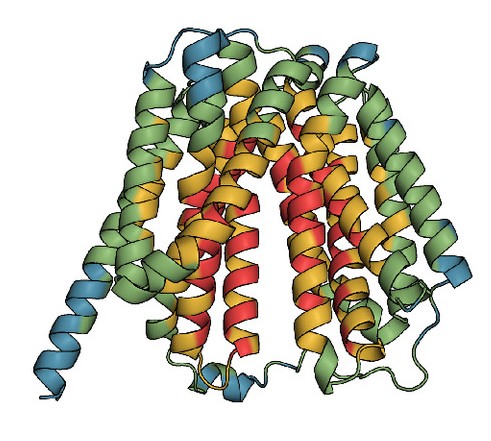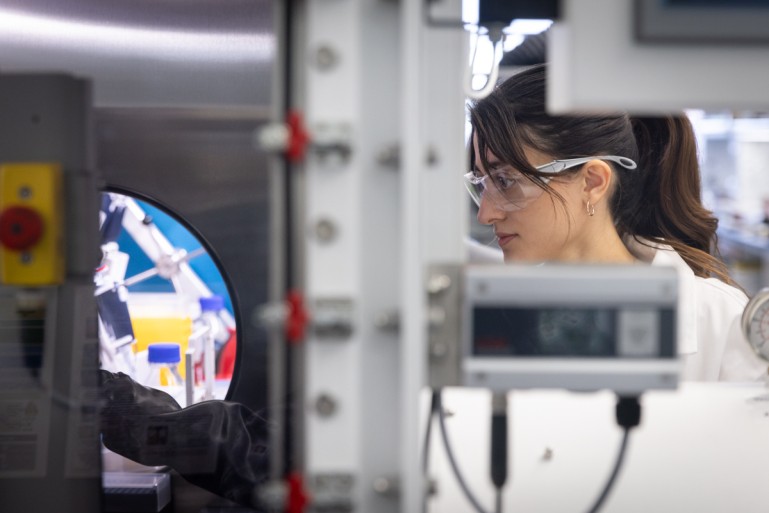The University of Wisconsin–Madison, together with more than 15 partners across the region, will launch the Midwest Climate Collaborative at a virtual gathering on Jan. 28.
The University of Wisconsin–Madison ranked 4th for total research expenditures financed by the U.S. Department of Energy (DOE) among public and private universities in the 2020 fiscal year, according to data released Monday by the National Science Foundation (NSF).
Julia Martien’s philosophy in life is to have fun while trying to make the world a better place. That includes the work she did for her graduate study as part of the Great Lakes Bioenergy Research Center.
Associate Professor of Civil and Environmental Engineering
University of Wisconsin–Madison professors Thomas R. “Rock” Mackie and Bulent Sarlioglu have been named fellows of the National Academy of Inventors, the organization announced today.
In a new study, a team from the Great Lakes Bioenergy Research Center describes a multi-solvent extraction process that can isolate five major products obtained from poplar lignin.
This week we spoke with Leta Landucci, an undergraduate researcher in John Ralph's lab at the University of Wisconsin–Madison, to talk about her research into popular tree enzymes, how her research connects with plant engineering, and her experience working with talented scientists.



